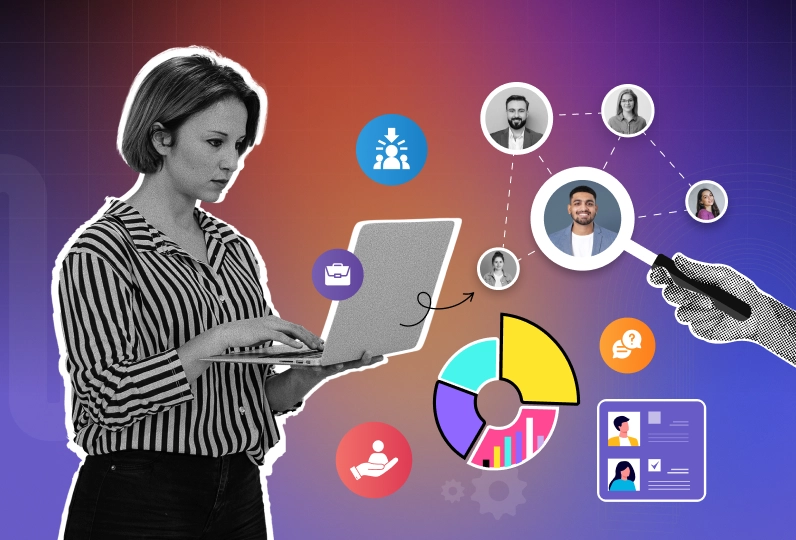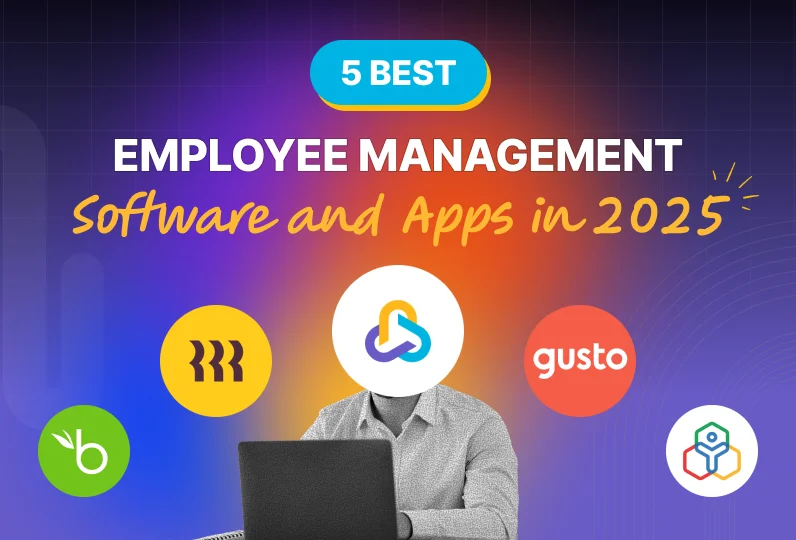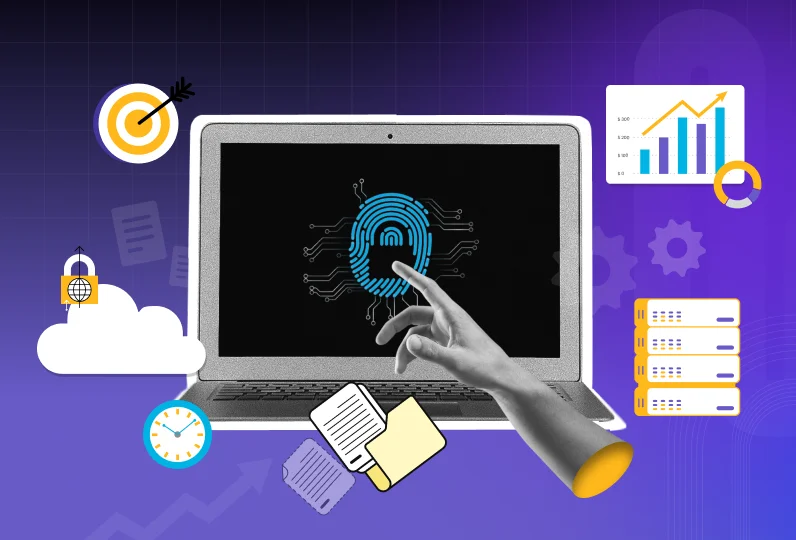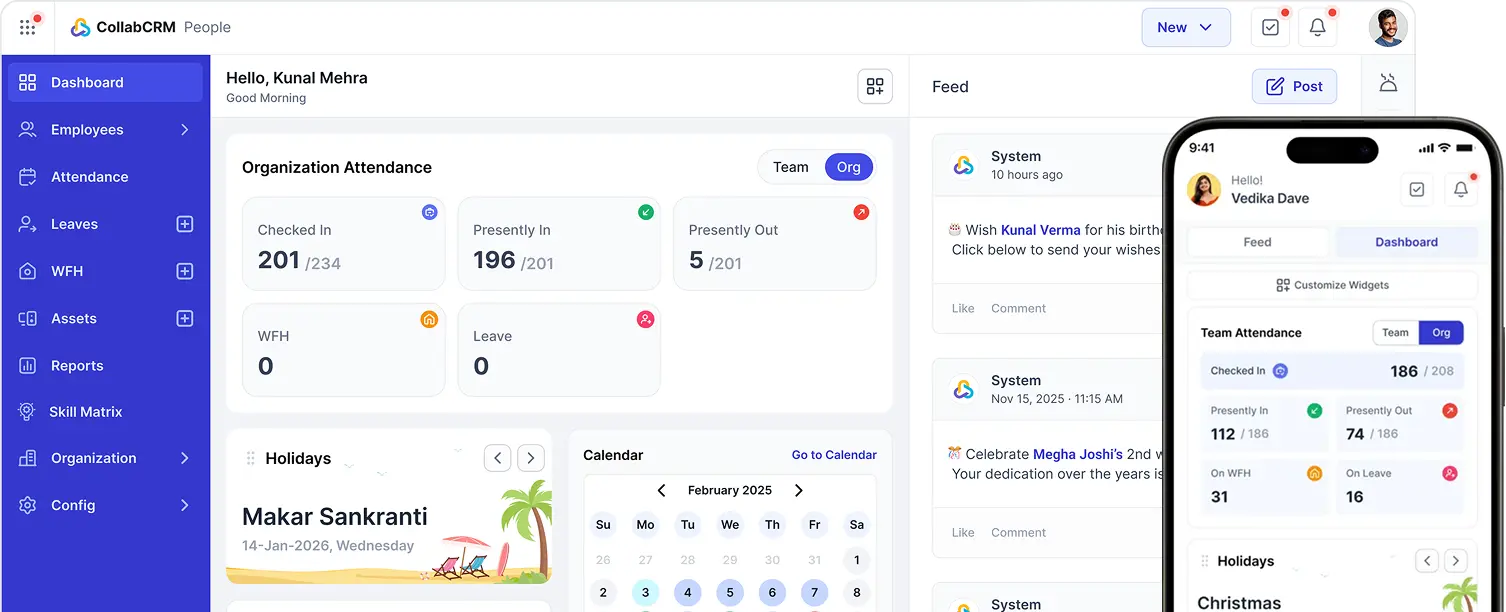When a company grows, its operations increase, and so does the complexity level. One aspect among many that struggles to keep pace with this expansion is human resources (HR). The HR department in every organization plays a critical role, dealing with various tasks from recruiting and onboarding to employee relations and compliance.
As HR is one of the departments responsible for many operations, its slower performance can cause an organization to misalign with the flow. Therefore, streamlining HR operations should be the priority for businesses, specifically when a company is continuously growing, to ensure its operations remain in line with ever-evolving needs.
Companies can streamline HR operations by replacing traditional manual methods with advanced HRMS systems, opening up new ways to expand exponentially. This blog will let you know everything about why streamlined HR operations should be the priority for growing companies, along with the crucial steps to do so.
Key Takeaways
- Growing companies must streamline HR operations, as manual processes don’t scale and often cause delays, errors, and compliance risks.
- HRMS adoption transforms operations, from recruitment and onboarding to payroll and compliance, and automation reduces workload and accelerates processes.
- Companies like IBM, MindInventory, and Salesforce experience measurable improvements in hiring speed, retention, compliance, and employee satisfaction after streamlining HR operations.
What Is the Need to Streamline HR Operations?
As a company scales, the number of employees increases, and with that, there comes an increased amount of administrative tasks for the HR department. What worked when the company was smaller, like manual processes, paper-based records, or simple spreadsheets, might not be that efficient in expanded requirements.
That level of proliferating needs puts HR professionals in a state to juggle numerous tasks, including managing employees, ensuring legal compliance, addressing the needs of employees, and the like. This further delays the time to task completion and is likely to be prone to errors, causing loss to the organization in the long run.
To avoid these obstacles, businesses should consider streamlining their HR operations to embrace simplified processes and sustainable growth.
Why Businesses Should Prioritize Streamlining HR Operations
Businesses sometimes spend time and resources that can be eliminated with an efficient HR operation. Streamlining HR operations to reduce costs by automating tasks, boosting efficiency through standardized processes, and improving the employee experience by fostering satisfaction and engagement. Here’s why businesses should streamline their HR operations:
Faster Recruitment and Onboarding
HR technology, such as applicant tracking systems (ATS), automated onboarding platforms, and learning management systems (LMS), enables HR teams to ensure faster recruiting and onboarding processes. They help them smooth processes like communicating with candidates, scheduling interviews, and ensuring that the prospective employees are properly onboarded with all the essential resources.
Organizations like Google, Airbnb, Zappos, and IBM use HRMS systems, demonstrating how streamlined HR operations lead to faster hiring outcomes, reduced turnover rates, and productive employees. IBM uses AI-enabled tools for recruiting and onboarding.
IBM’s use of AI analytics in onboarding resulted in a 25% reduction in employee turnover. An AI-driven chatbot helps the company guide candidates throughout the hiring process, while AI algorithms tend to recommend the best-fit candidates based on the job requirements. Furthermore, the digital onboarding platforms provide candidates with a detailed, more immersive introduction to the company resources and culture, making them familiar before joining.
Improved Talent Acquisition and Retention
Using advanced HRMS, human resources departments across organizations improve talent acquisition and retention. These systems help companies consolidate and automate a variety of HR tasks into a centralized platform, significantly skyrocketing recruitment efficiency, employee management, performance tracking, and the like.
Companies like Netflix, Unilever, and T-Mobile demonstrate how HRMS drives better recruitment outcomes, excellent employee satisfaction, and reduced turnover, leading to a productive and stable workforce. The Netflix Way is a case study by Oxford Academics of how Netflix succeeded in talent retention.
Improved Efficiency and Time Savings
Employing automated resume screening, faster interview scheduling, and automated onboarding workflows powered by modern HR software solutions, organizations automate repetitive HR tasks and significantly lessen the time spent on performing administrative duties.
Besides, tasks such as payroll processing, performance appraisals, benefits enrollment, and time-off tracking can also be completely automated. This frees HR professionals to streamline tasks and focus more on other activities, such as talent management and employee development.
Better Data Management and Reporting
As businesses scale, they tend to generate an immense amount of data. When there’s no streamlined system to manage and assess this data, organizations might lose invaluable insights that could otherwise benefit the decision-making procedures. Centralized candidate information, data-driven recruitment decisions, and consistent record-keeping competencies of modernized HR management systems help organizations streamline HR operations.
These data help teams make informed decisions on staffing, training, compensation, and other significant aspects. For example, employing performance tracking helps determine excellent performers likely to be suitable for leadership roles.
Enhanced Employee Experience
A smooth, efficient, and streamlined HR procedure directly impacts employee experience. Employees expect convenient access to HR services like payroll enrollment, training, opportunities, performance feedback, and more.
By implementing technologies for HR services like self-service portals, employers can enable employees to conveniently access information at any amount of time, mitigating frustration that might be associated with manual procedures.
Accelerated HR operations with an HRMS improve communication, simplify administrative procedures, provide a tailored experience, and deliver an excellent employee experience.
MindInventory developed and using CollabCRM, a business operating system, to modernize its HR processes. Before implementation, employees struggled with manual payroll requests, delayed performance feedback, and limited access to training updates. The system streamlines complete HR management.
With CollabCRM, the company introduced a self-service portal where employees can check payroll details, track learning modules, and receive instant performance reviews. This not only reduced HR’s administrative workload but also improved transparency and employee satisfaction across the organization.
Enhanced Scalability
As businesses grow, the complexity of HR functions, including recruitment and onboarding, payroll management, employee performance tracking, and compliance, becomes overwhelming. Implementing an effective HRMS system helps organizations streamline HR operations and scale them as their needs grow.
Such systems centralize and automate various tasks and ensure enhanced scalability and efficiency as the needs of the company grow.
Compliance and Risk Management
Staying compliant with laws, such as labor laws, tax regulations, and industry standards, gets way more complex when an organization expands. Non-compliance is likely to cause significant penalties, reputational damage, and legal actions. Therefore, streamlining HR operations, powered by a smart HRMS system, ensures that compliance is integrated into every aspect of the HR function. It includes hiring, onboarding, payroll management, and employee performance tracking.
An automated system allows real-time tracking of employee hours, benefits eligibility, and many mandatory training requirements. It ensures the company remains compliant with laws like the Fair Labor Standards Act (FLSA) or the Affordable Care Act (ACA). Additionally, HR systems offer real-time updates on regulatory changes, allowing teams to stay ahead of the legal requirements.
How to Streamline Your HR Operations
Here’s how businesses can accelerate their human resource operation to grab the next level of benefits and take their businesses to the next level.
- Evaluate Current Processes: Companies should conduct a thorough assessment of their existing HR processes and identify areas in need of efficiency. They should accumulate feedback from HR professionals in the team, understand pain points and opportunities, and then do all the due diligence needed to streamline HR operations.
- Implement HR Software Solutions: Once they have pinpointed the procedure and needed requirements, businesses should implement efficient HR software to automate all the key areas like payroll, performance management, and benefits administration. Cloud-based systems can be effective, especially for growing companies, as they need scalable solutions and easy access from anywhere.
- Centralize Data: After implementing HRMS, consolidating employee data on a centralized HR system is essential to enhance accessibility and security. It also allows HR professionals to generate real-time reports and make data-driven decisions.
- Offer Self-Service Options: Organizations should also consider implementing self-service portals, enabling employees to update personal information, access pay stubs, request time off, and more. It mitigates the burden on HR professionals and enables employees to manage information on their own.
- Train HR Staff: Last but not least! Companies should be providing appropriate training, enabling staff to understand the new system and processes, and effectively manage the streamlined operations in the organization.
Wrapping Up!
An efficient and streamlined human resources (HR) operation is crucial in an organization. Right from faster recruitment and onboarding to robust data management and excellent employee experience, streamlined HR operations in a company make a huge difference. It fosters an excellent employee experience while supporting the company’s progress.
If you’re a business owner needing to accelerate HR operations, you can just employ one of the project management software solutions, CollabCRM, to skyrocket your operations.
CollabCRM comes embedded with all the features needed for a streamlined HR operation. People management, project management, CRM & Invoice, and recruitment management are a few of the features that ease HR operations. From intelligent candidate screening to automated project insights, you can optimize everything with this work management system. Click here to watch the demo before you get a subscription!
FAQs
CollabCRM, Keka, Monday, Zoho People, and many more are the tools to manage HR operations. However, CollabCRM is one of the best business management tools, tailored to IT companies.
Streamlining HR operations means simplifying and automating repetitive HR tasks. Easying and automating operations like payroll, attendance, onboarding, and compliance management, the processes become faster, more efficient, and less error-prone.
HR software and automation tools centralize data, reduce paperwork, and automate routine tasks. These tasks may involve leave requests, performance tracking, and payroll, automating which gives HR professionals more time to focus on people rather than processes.
Companies often face issues like data silos, compliance risks, employee dissatisfaction, and higher operational costs when HR functions aren’t streamlined.
Typically, payroll, employee onboarding, time tracking, and performance management are the best starting points since they’re repetitive, time-consuming, and prone to errors when handled manually.
By improving efficiency, reducing errors, and enhancing employee experience, streamlined HR operations directly support productivity and retention, the two key drivers of sustainable business growth.






